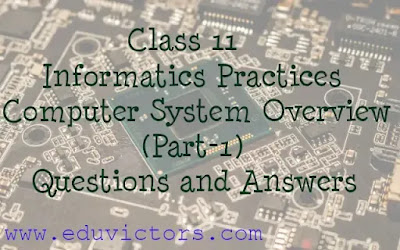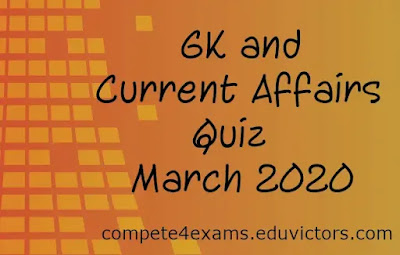Blog provides NCERT solutions, CBSE, NTSE, Olympiad study material, model test papers, important Questions and Answers asked in CBSE examinations. References to Educational Sites and resources.
Wednesday 8 April 2020
Monday 6 April 2020
What is Kinetic Theory of Matter? - CBSE Class 9 - Chemistry - Matter In Surroundings (#eduvictors) (#cbseClass9Science)
What is Kinetic Theory of Matter?
CBSE Class 9 - Chemistry - Matter In Surroundings
What is Kinetic Theory of Matter?
The Kinetic Theory of Matter states that matter is composed of a large number of small particles —individual atoms or molecules — that are in constant motion. This theory is also called the Kinetic-Molecular Theory of Matter and the Kinetic Theory of Gases.
The main postulates of kinetic Theory of matter are following:

Sunday 5 April 2020
CBSE Class 9 and 10 Syllabus for Academic Year 2020-21(#eduvictors)(#cbse)
CBSE Class 9 and 10 Syllabus for Academic Year 2020-21
The syllabus provided by CBSE is largely based on National Curriculum Structure 2005 (published by NCERT) and looks to give chances to understudies to accomplish greatness in learning.
Here are the pdf links for important subjects in Class 9 and Class 10:

Saturday 4 April 2020
CBSE Class 12: Accountancy - Chapter 1: Not For Profit Organisations (NPOs) Questions and Answers - (Part 2) (#eduvictors)(#cl12Accountancy)
Chapter 1: Not For Profit Organisations (NPOs) Part-2
CBSE Class 12: Accountancy
Q1: Define honorarium. How is it shown in income and expenditure account?
It is shown as expenses.
Answer:

Thursday 2 April 2020
CBSE Class 9 Maths Chapter: Number Systems Quiz (#eduvictors) (#cbse)(#class9Maths)
CBSE Class 9 Maths Chapter: Number Systems Quiz

Monday 30 March 2020
Class 11 - Informatics Practices / Computer Science - Computer System Overview (Part-2) Questions and Answers (#eduvictors)(#class11InformaticsPractices)
Computer System Overview
(Part-2)
Questions and Answers
Class 11 - Informatics Practices / Computer Science
Answer: A device through which data and programs from the outside world enter the computer system is called an input device. It converts the input data into a digital form that is acceptable by the computer system.
Q2: Identify the input device from the picture given below. Write one line description about each item .

Saturday 28 March 2020
CBSE Class 9 - Physics - Chapter Motion - Short Questions and Answers - Part-1 (#eduvictors)(#cbse)(#cbseclass9)
Chapter Motion: Class 9 - Physics - Short Questions and Answers - Part-1
Q1: An object has moved through a distance. Can it have zero displacements? If yes, support your answer with an example.
Answer: Yes, even if an object has moved through a distance, it can have zero displacements. For example, an object after moving through a certain distance (say d), comes back to its starting position. In that case, the distance covered is 2d while displacement is zero.
Q2: Is displacement a scalar quantity?
Answer: No, displacement is a vector quantity because it has magnitude as well as direction.
Q3: State whether the distance is a scalar or a vector quantity.
Answer: Distance is a scalar quantity; it has magnitude but no specific direction.

Thursday 26 March 2020
Wednesday 25 March 2020
CBSE Class 12: Accountancy - Chapter 1: Not For Profit Organisations (NPOs) - Questions and Answers - (Part 1) (#eduvictors)(#class12Accountancy)
Chapter 1: Not For Profit Organisations (NPOs)
Questions and Answers - (Part 1)
CBSE Class 12: Accountancy
Q1: What is a Not For Profit Organisation (NPO)?
Answer: NPO's are voluntary organisations founded with objective of promoting art, culture, education and other social and charitable purpose without any intention of earning profit. They work for self interest.
e.g. Hospitals,colleges,schools,universities,religious organisations, culture institutions, professional accounting bodies i.e. ICAIICSI etc are generally run by NPOs.
Q2: What are the salient features of NPOs?
Answer:
(i) Service motive
(ii) Profit is not the criterion.
(iii) Surplus not distributed among its members.
(iv) Separate entity.
(v) Unique names connect their working.
(vi) Managed by elected persons.
(vii) Major funds in the form of contribution and donations, etc.
Q3: Distinguish between Not for Profit Organisation and Profit Organisation.

Tuesday 24 March 2020
Class 11 - Informatics Practices / Computer Science - Computer System Overview (Part-1) Questions and Answers (#eduvictors)(#class11InformaticsPractices)
Computer System Overview
(Part-1)
Questions and Answers
Class 11 - Informatics Practices / Computer Science
Q1: What is a computer?
Answer: A computer is an electronic device, under the control of instructions stored in its memory that can accept data (input), process the data according to specified rules(Program), produce information (output), and store the information for future use.
The word 'computer' comes from the word 'compute' which means to calculate. Therefore, a computer is an electronic device that can perform arithmetic operations at high speed.
Q2: Why a computer is also called a data processor?
Answer: A computer is also called a data processor because it can store, process and retrieve data whenever desired.

Subscribe to:
Posts (Atom)

